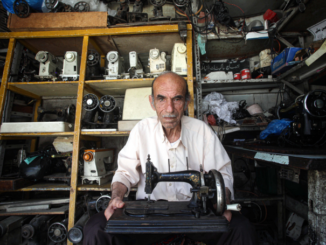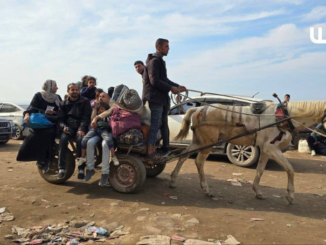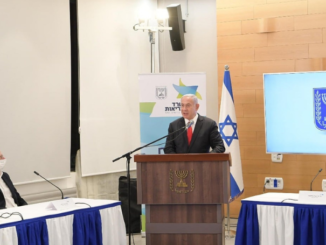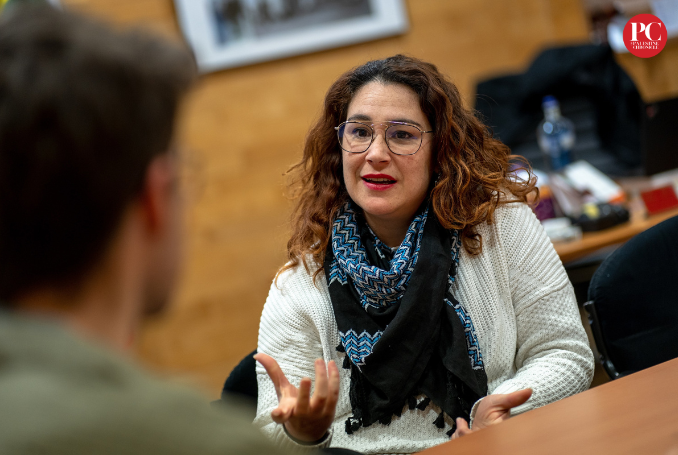
By John McAulay
The Palestine Chronicle speaks with one of the leading actors behind Barcelona’s move to break ties with Israel: “We are shining the spotlight on the side that is killing and practicing apartheid against Palestinians”
Laura Pérez, born in Barcelona in 1982, is no stranger when it comes to defending global human rights. Before becoming Barcelona’s Deputy Mayor in charge of the office of Social Rights, Global Justice, Feminisms and LGTBI, her struggle for gender equality took her around several countries in Latin America.
But lately, much of her focus has drifted toward the Middle East. Just a couple of weeks back, a delegation from Nablus headed by Mayor Adly Yaish visited the Catalan city. On the same day, the Israeli military conducted an incursion into the Palestinian city which left eleven dead and over a hundred injured.
Barcelona’s historic decision to suspend its twinning agreement with Tel Aviv and cut ties with Israel due to its practice of apartheid has come at a time of increased violence against Palestinians.
Strengthening solidarity with those fighting for the liberation of the Occupied Territories is more important than ever. And Laura Pérez is determined to do just that. In her office hangs a beautifully hand-crafted pennant from Gaza, and the Deputy Mayor recalls a modest bracelet she was gifted by some local women during her last visit to the region. However, standing up to Israel also has its downsides.
“I probably won’t be allowed into Tel Aviv again”, she laments. “And that’s the gateway into Palestine”.
Barcelona decided to suspend its relationship with Israel. What does this mean?
Barcelona has strong links of cooperation with Palestine, which is a priority area for us in international cooperation. And the people of Barcelona are close to the Palestinian cause, so much so that they brought to us a popular initiative to suspend our relationship with Israel. This is meant to be a warning to the oppressor, so we understand it as a symbolic gesture that shows our city’s compromise with the Palestinian people.
Is this a message that you are trying to send for the whole world to follow?
Yes. The aim is also to break this idea about it being a two-sided conflict. We are saying that both sides are not equal, that there is an occupier and an occupied. By pointing our finger toward the aggressor and its lack of respect for international law, UN resolutions, and human rights organizations, Barcelona is shining the spotlight on the side that is killing and practicing apartheid against Palestinians.
Last year, the regional Catalan Parliament condemned Israel’s apartheid regime, and now Barcelona has become the first European city to break ties with Israel. Is there a sense of pride in being at the forefront of the movement?
Of course, especially knowing the hardships that come with it. The accusations of antisemitism that arise when one defends Palestine make it difficult for other cities or countries to make their position clear.
It is not a coincidence that Barcelona and Catalonia are at the forefront, our people have had a historic connection that has come from the Palestinian community living here, as well as from local human rights organizations.
Institutions are required to respond to these demands: first, it was the regional Parliament; now, it has been the City Council. Our decision has had an impact on the international framework, and we hope it helps the international community continue taking steps forward.
A decision that has come precisely at a time when Israel’s government has moved clearly toward the far-right and multiplied its violence against Palestinians.
Exactly. We are far from the spirit of the Oslo Accords, when the two-state solution was feasible.
Benjamin Netanyahu’s offensive means there is a very real risk of losing the West Bank, so we had to do it now. Otherwise, we might not have another opportunity to defend a territory that has been broken up and divided, without freedom of movement for Palestinians to get a proper education or healthcare. Their situation hits very close to home, we had to take this step or it may soon be too late.
How important have the local human rights organizations been in breaking ties with Israel?
In the case of Barcelona, they have played a key role. We have had support from intellectuals, Palestinians, and even Gaza’s City Council, and the organizations have been insistent until the last moment.
We would like there to offer our solidarity at an institutional level since civil society has already shown its support for the Palestinian cause.
In the case of South-African apartheid, for example, some cities in the United States were the first to break the silence and suspend their relationships with the country.
The proposal of the local human rights groups for Barcelona to break ties with Israel was expected to go to a vote amongst the political groups that make up the City Council, but in the end, Mayor Ada Colau decided to take the matter into her own hands. Why is that?
Basically, because we felt directly affected by the initiative. The Mayor believed it was her responsibility, and not of the local plenary because she oversees the relationships with other cities.
Also, when the local organizations saw that the rest of the political groups were not interested in the proposal, they pushed the Mayor to make a move.
As you mentioned, none of the other political groups backed the Mayor’s decision, despite that two of them –ERC (Republican Left of Catalonia) and PSC (Socialist Party of Catalonia)– had voted in favor of the regional Parliament’s resolution condemning Israel’s practice of apartheid. Why have they changed their view?
Our group has no internal division when it comes to the Palestinian issue, and we have many activists among us. But neither ERC nor PSC have a clear position, and this debate has made them very uncomfortable.
They have also proved to be inconsistent after backing Barcelona’s decision to break ties with Saint Petersburg last year following Russia’s invasion of Ukraine. We tried pushing the initiative together until the very last moment when it was clear they were not willing to follow our steps.
The opposition has criticized the Mayor for the move, accusing her of acting with electoral interests in mind. And Israeli activists have called her an antisemite, while the Israeli Minister of the Economy Nir Barkat recently visited Barcelona and said ties would be kept alive.
If this were an electoral move, it would be a very bad one. And I understand the Israeli government’s logic to try and pretend like its relationship with Barcelona hasn’t changed.
Israel’s strategy has always been to export an international image of democracy.
Barcelona’s Struggle to Cut Ties with Israeli Apartheid (PHOTOS)
What was your role in the process of breaking with Israel?
Being in charge of the office of Global Justice, I handle the relationship with Palestine and the organizations that called for breaking ties with Israel.
The Mayor met with these human-right groups years ago and shared her support, which she has made evident on many occasions, denouncing Israel’s practice of apartheid and meeting with pro-Palestinian activists.
We have worked together during this process, but the decision to put all ties with Israel on hold is hers, and she has received a lot of backlash in response. Just for that, I applaud her courage, because she could have easily decided to stay out of it instead of standing for what she believes in.
As well as breaking ties with Israel, the Mayor’s decision also involved the twinning agreement between Barcelona, Tel Aviv, and Gaza, which was established in 1998 during the years of optimism following the Oslo Accords and set forward a framework of cooperation between the three cities. Was this agreement still working?
It has never been effective. There have never been specific cooperation projects put forward, and peace-talk groups have not been organized, as the agreement mentioned. In fact, the first time this agreement has ever been useful is when it has been suspended.

But, while the twinning agreement between Barcelona and Tel Aviv has been frozen, so has that between Barcelona and Gaza. What sense does it make to suspend ties with the main city under Israeli attack?
Because what we are putting on hold is the twinning agreement, which was a useless instrument. Our cooperation with Gaza has been strengthened during the last few years through several technical projects there and also Palestinian NGOs.
I myself tried to visit these projects but was not allowed to enter Gaza. We have not broken our ties with the Gazan people, or those Israeli organizations that work for peace. We must differentiate between a three-way twinning agreement, which was symbolic and ineffective, and our relationship with Gaza, which has been bolstered.
You mentioned you were denied a visit to Gaza. What happened?
It was in 2018, after starting several cooperation projects with Gaza through NGOs that work on areas like water or mother-child health issues.
I was denied entry as is usual in Israel’s trend to make it difficult for politicians or other influential people to see what’s happening in Palestine and use security reasons as an excuse.
In December last year, I went to the West Bank, where I visited the refugee camps in Jenin and the human rights organizations that have been criminalized and harassed by Israel, but I did not attempt to visit Gaza this time.
What exactly do Barcelona’s ties with Palestine entail?
It is not only about me visiting Palestine. For example, two weeks ago, we had a delegation from Nablus come to Barcelona.
Our technical cooperation is not too well-known, but covers areas of city management, and does not involve financing projects. We accompany Palestinian cities and towns if they have questions about building a new street, how to deal with waste disposal… Apart from that, we fund several Palestinian NGOs, some of them based in Gaza.
After breaking with Israel, the reaction from Palestinians has been unanimous. Even Gaza, with whom the twinning agreement has been suspended, put up a billboard thanking Barcelona. How has this made you feel?
It has been thrilling. We have been worried about making sure our goal is made clear, and for it not to be discredited with the unfounded accusations of antisemitism.
Palestinians rarely receive the warmth of the international community; on the contrary, they feel like nobody cares about them like they are stuck in a conflict that is no longer important from a geopolitical perspective.
And for once, they have received a much-needed taste of international solidarity.
Are there any other cities that have been in contact with Barcelona to congratulate you or ask for advice in cutting ties with Israel?
There has been a massive social response, with many organizations from across the world thanking us, so it is clear we have made ourselves heard.
We have received letters from human rights groups in the United States and many Jewish organizations. But it has not been so from institutions.
That being said, we do celebrate the recent announcement made by Argentina, Brazil, Chile and Mexico against Benjamin Netanyahu’s plans to expand settlements in the Occupied Territories, which proves that governments are starting to move. But we’re missing the United States. Their action would be crucial to make a serious dialogue between both sides possible.
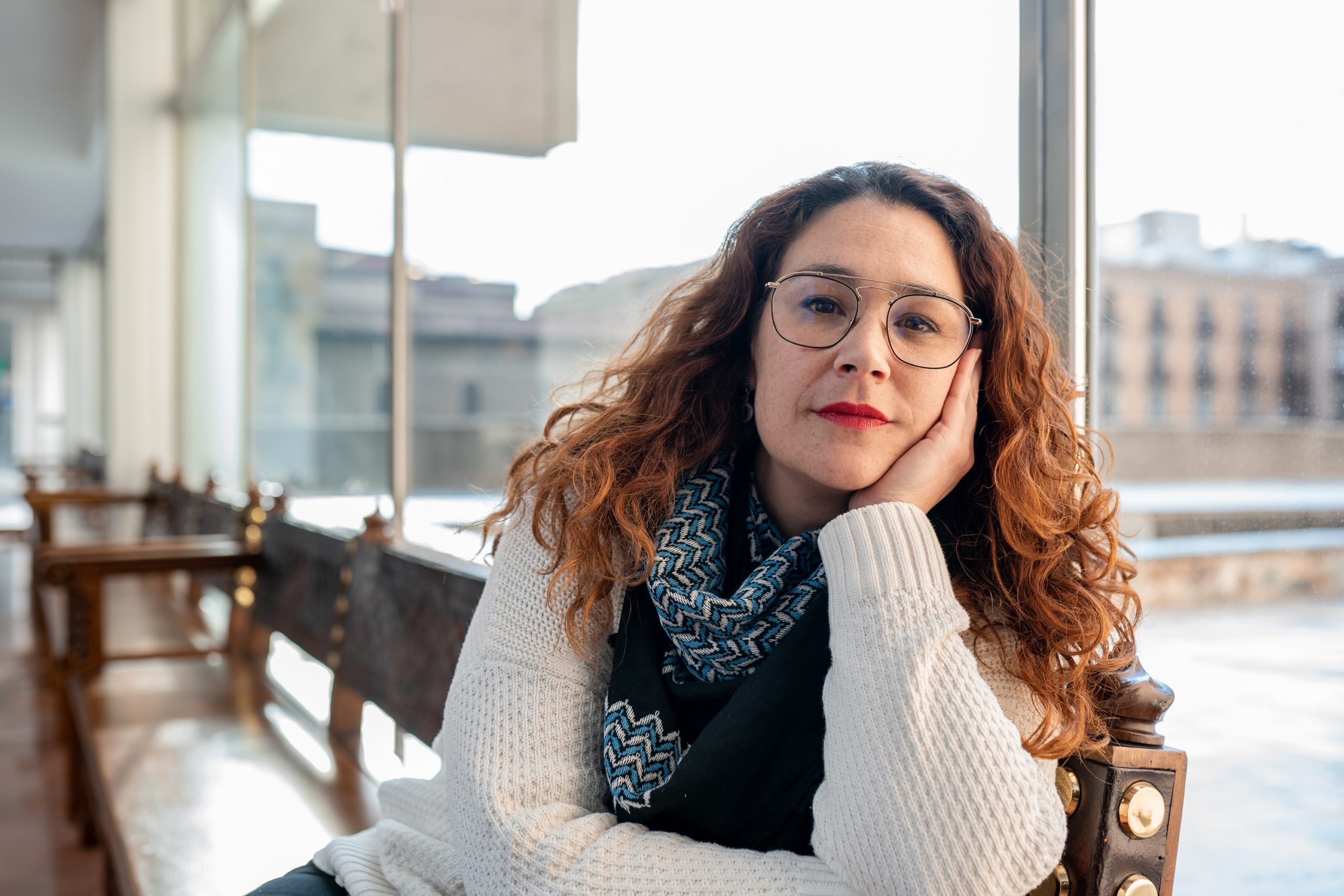
At the very least, it is clear that many governments are going in the same direction as Barcelona.
Yes. The obvious brutality of Benjamin Netanyahu’s policies make it very difficult for the European Union to stay put in its neutrality, and even the High Representative for Foreign Affairs Josep Borrell made a call to stop the construction of new settlements.
So things are starting to shift because the evidence makes it impossible for these long-established positions to be maintained.
Despite Barcelona’s step forward, the Catalan government recently said it would maintain its relationship with Israel. And the Spanish government has important arms deals with Israel.
As to the Catalan case, former regional Foreign Affairs minister Victòria Alsina’s words discredited our Parliament after it called out Israel’s practice of apartheid. She believes it is an exemplary democracy. And when it comes to the foreign policies of the Spanish government, there are many contradictions and little courage. It is also visible in the case of Morocco and the Western Sahara.
Barcelona broke its twinning agreement with Saint Petersburg last year after Russia’s invasion of Ukraine. Are there any other ties with cities that it’s thinking about putting on hold because of human rights abuses?
We do not review our twinning agreements on a regular basis, and doing so does not make me feel too comfortable. As they say, ‘He that is without sin among you, let him first cast a stone’. But it can be helpful depending on the international context.
Such is the Palestinian case. There is a large movement that calls to isolate Israel on a geopolitical level, and our decision can be useful from a symbolic perspective.
When will ties with Israel and Tel Aviv be re-established?
Many people have said that breaking ties is a contradiction if we are trying to build bridges, but it is not.
The twinning agreement is not broken, it is only suspended until the rights and the freedom of Palestinians are respected. We hope that one day the context will be right so we can sit down to re-establish our relationship with Israel and Tel Aviv, if it helps the situation. But right now, we are extremely far away from this.
(All Photos: Frederic Esteve, Supplied)

– John McAulay is a journalist based in Barcelona with an interest in social issues and international conflicts. He contributed this article to The Palestine Chronicle.

